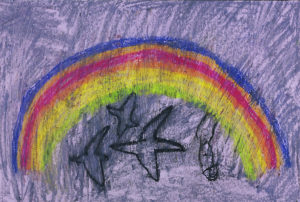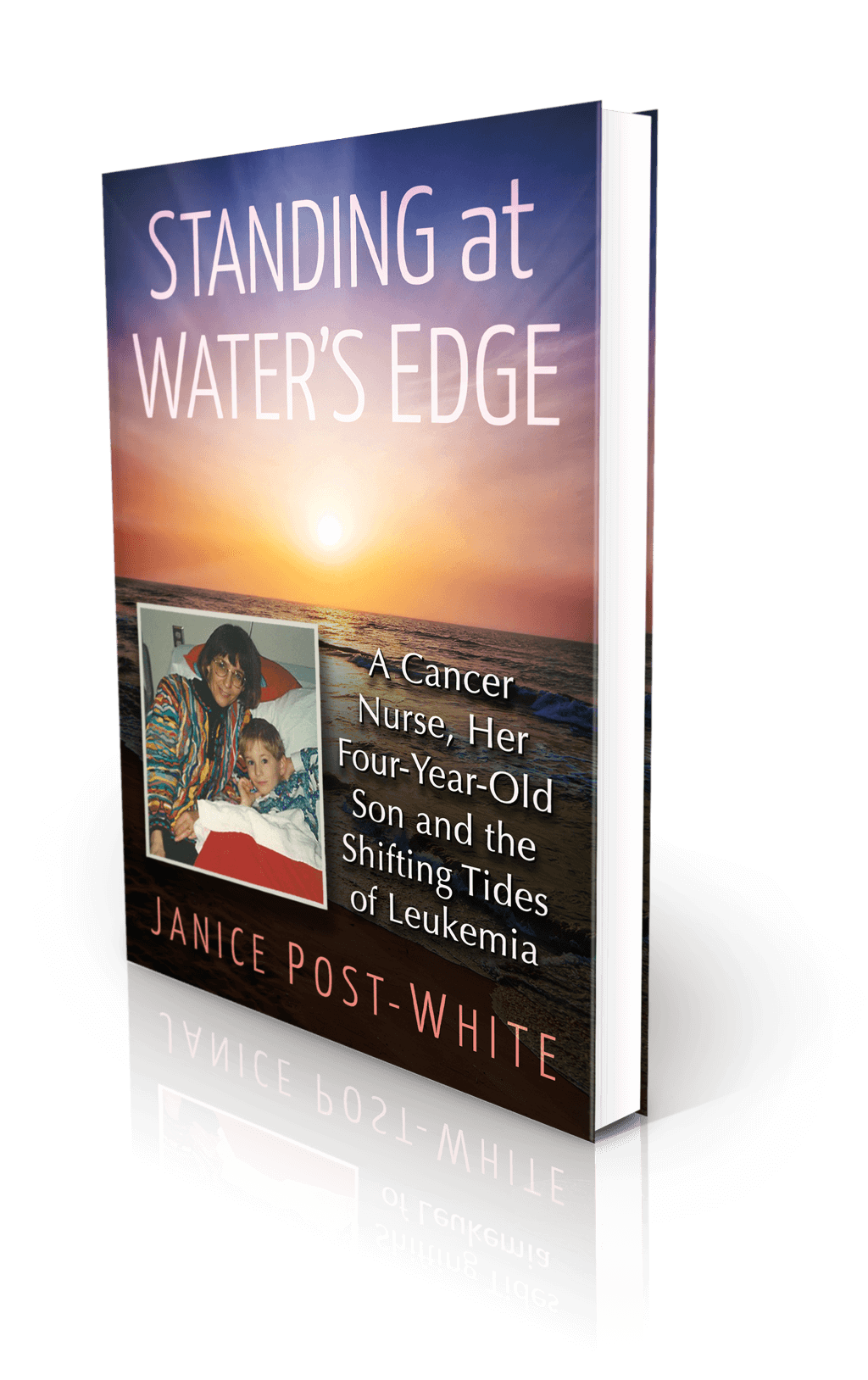

Photo by Kristopher Roller on Unsplash
Life, Interrupted:
Everyone, it seems, is reflecting on the first year of the pandemic. What’s your takeaway on how this past year has affected you, your life? I resisted but finally took twenty minutes to jot down how my routines changed (very little, other than no travel or coffee dates) and how the circumstances influenced my perspective, attitude, mood, and energy (anyone else block out the first four months?). Whether or not you even care to look back, most of us will concur that life has been interrupted. The one we were familiar with, anyway. And the changes we’ve had to make are dragging on, far longer than any of us predicted or would admit to a year ago. As you start to emerge from a year of isolation—some more cautiously than others—how will you move on? Will you venture forth tentatively, gradually, or full-speed ahead, ready to resume life where you left off? Can we go back to before?
Those of us who have lived through cancer—in ourselves or a family member—know the uncertainty, unpredictability, and fear a life-threatening illness elicits. We never anticipate living through cancer, especially as a child or young adult, and most of us probably never imagine living through a pandemic. We are finding our way. Cancer taught us something about survival and about living beyond crises.
Suleika Jaouad was 22 years old when she was diagnosed with acute myelogenous leukemia (AML), an aggressive blood cancer with a 35% chance of long-term survival. In her newly published memoir, Between Two Kingdoms: A Memoir of a Life Interrupted, she shares what it was like to have cancer in her twenties.
“Age is an inextricable component of how we experience illness,” Suleika writes. As a young adult poised to launch herself into the world of work/career, independence, and friendships and intimate relationships, she instead was thrust back into her pink childhood bedroom or sequestered in a stark, fluorescent-lit hospital room for weeks on end. She was isolated and dependent on others while her friends and peers were out in the world finding themselves and establishing their careers. For three and a half years.
When my four-year-old son had leukemia (ALL, a more “favorable” leukemia with an 80% survival rate then), the anticipation of more than three years of treatment overwhelmed me. We were just adapting to life with two children when everything changed. He would be almost eight years old when we could finally reclaim his childhood and move beyond simply surviving.
In this last year of the pandemic, I often thought about the adolescents and young adults who missed out on long-anticipated graduation festivities, a first-year away at college experience, a new job/career opportunity, athletic training and competitions, new cultural and social experiences, and critically, their independence. Kids are resilient, we’ve been told, and yes, it’s only been a year. So far. And perhaps life doesn’t feel so tenuous if you are healthy and well.
Although more than three years of treatment felt like forever, there was some certainty in knowing how long our son’s clinical trial was expected to last. Suleika only knew that she would need chemotherapy and a bone marrow transplant (BMT) that would entail a precarious 100-day engraftment period. She did what most of us do in “survival mode”—she took life one day at a time.
She doesn’t dwell on the stakes or risks of treatment in her memoir. But having worked as a BMT nurse, I know the day-to-day reality. When my son was diagnosed, my greatest fear was that he would need a transplant. Reflecting on that moment, I wrote:
Suddenly, I saw vivid flashes of the two sixteen-year-old boys with aplastic anemia whom I had nursed through bone marrow transplants in Chicago fifteen years earlier. I saw the tubes, the swollen tummies, the bald heads and puffy cheeks, and the sunken and angry eyes pleading for a release from the strict isolation rules. Both boys had died, each one comforted by familiar faces behind masks, touched through latex gloves. An image of my son on a respirator flashed across my view. I quickly gasped for breath and walked out of the memory. Standing at Water’s Edge, Chapter 4
My son and Suleika are survivors. And yet, we both admit that surviving is not living.

Moving On Through Treatment: A 5-Year-Old view, Photo by Author
Living After Surviving
In Part 2 of her memoir, Suleika explores how she went on living after her life was so unduly interrupted. After a few tentative weekend trials at her family cabin, she set off on a 15,00 mile, 100-day road trip across the United States to visit people she had corresponded with through her New York Times column and video series, Life, Interrupted. Not everyone had cancer, but all had their life interrupted in some way. She felt connected to this community. She listened, she questioned, and she reflected.
Ultimately, Suleika came to accept that she would never get her old life back—you can’t just pick up where you left off, she says in her book and in several media interviews. She had felt trapped between two worlds—between the “Kingdom of the sick and the Kingdom of the well.” Suleika wasn’t just figuring out a career in her mid-twenties; she was taking on a new identity as a cancer survivor, one who lived with the uncertainty and limitations of lingering effects and symptoms. She was living in the “messy middle.” But she was living again.
And here we are in the messy middle of a pandemic, trying to maintain our physical, mental, emotional, spiritual, and financial wellbeing. Many of us remain in limbo—waiting, adapting, and balancing surviving with living, in whatever way works for us. Others are merging back onto the highway of life. It will take some time, however, to gain perspective on where we’ve been and to find our way forward with a new awareness for living.
Suleika wrote in her journal throughout her treatment. It helped her process events and feelings and make sense of her experience. At the beginning of the coronavirus pandemic, she started The Isolation Journals, a weekly online prompt for people to write about their isolating situation and pandemic experience. A year later, a community of 100,000 individuals continues to connect through creativity. Check out their inspiring words and beautiful artwork. And maybe try out a prompt for yourself to see where you land.
We change through our experiences. I, too, write to make sense of my thoughts and find meaning in changing circumstances. Taking the risk of putting my words out into the world connects me to others. Suleika found community and connection by making friends with other young adults with cancer, sharing stories with others who also experienced a life-altering event, and creating beauty out of isolation during a global pandemic. And connection is the “gift of feeling understood,” she says.
When we stay in touch with our humanness, we are living, not just surviving. You survived COVID-19. How do you want to live now?
~ Janice

About the Book
Janice Post-White’s memoir is a story about a cancer nurse who thought she knew what life and death were about.
Then her 4-year-old son got leukemia.
This heart-wrenchingly real but inspiring book shines a light on the life-affirming discoveries that can be made when one is forced to face death—and bravely chooses to face fears.
ON SALE DECEMBER 3, 2021
2022 First Place Award from the American Journal of Nursing Book of the Year in the category of Consumer Health and Third Place in Creative Works
Finalist in Health/Cancer from the American Book Fest Best Book Awards, the International Book Awards, and the Eric Hoffer Book Awards



